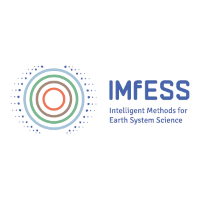Collaborative projects
The ideas of the key profile area are central in numerous cooperative joint projects in which the University of Cologne is involved.

SFB 1211 Earth - Evolution at the dry limit
Water is the defining feature of the habitable Earth; it is essential for all life as we know it. Evolution of life in extremely water limited environments, which cover significant portions on of the Earth, is not well understood. Akin to life, water-driven processes leave unique marks on the Earth’s surface. Mars is the only other planet known to bear the marks of water-driven surface processes, albeit fossil and of great age. The slow surface processes that may operate even in the virtual absence of water....
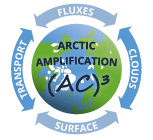
SFB/TR 172 Artic Amplification
AC3 - Arctic Amplifications: "Climate Relevant Atmosheric and Surface Processes and Feedback Mechanism" is a Sonderforschungsbereich/Transregio, funded by the DFG.
Data will be collected during dedicated, short–term field campaigns using ground stations, ship, balloon, and aircraft, and intensive, long–term observations from the ground (at super sites) and satellites for the circum Arctic region. The temporary, intensive field campaigns will be performed in different seasons to cover various cloud, aerosol, sea ice, and meteorological situations. They aim at detailed process studies with a focus on atmospheric and surface properties and feedback mechanisms driving Arctic amplification. The long–term observations target on trends and spatio–temporal variability during longer time periods (up to the last 3.5 decades). The short–term intensive campaigns are embedded in the long–term data sampling. Different temporal and spatial scales will be covered by using diverse observational platforms. The collected data will have some overlap and complementarity, which assures coherence.
SFB 1357 Microplastic
Collaborative research center (SFB) 1357: "Microplastics - Laws of formation, transport, physico-chemical behavior and biological effects: From Model to Complex Systems as a Basis for New Approaches" explores the formation, migration, and effects of microplastics and develops new approaches to solving this immense environmental problem.
SFB 228 Zukunft im ländlichen Afrika
Future Rural Africa: Future-making and social-ecological transformation
„Future rural Africa“ is an interdisciplinary collaborative research center funded by the German Research Council (DFG) involving geographers, anthropologists, political scientists, agroeconomists, soil scientists and ecologists from the Universities of Bonn and Cologne as well as external partners to address large-scale land use change and related social-ecological transformations along growth corridors in Eastern and Southern Africa.
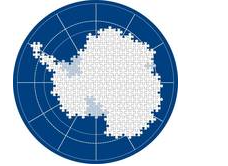
SPP 1158 Antarktisforschung
with comparative studies in arctic ice regions. Since 1981 there has been coordinated funding of polar research in Germany by the German Research Foundation (DFG). (...) The projects funded in the programme phases 2003-2007 and since 2008 and the scientific results achieved are presented in detail on the web pages of the Priority Programme www.spp-antarktisforschung.de. These show that there is a broad-based, highly qualified and motivated group of scientists in Germany who, with the help of SPP 1158, are making a clearly visible contribution to the pressing issues of international polar research.
A new sub-project has been funded since 2024, namely Geophysical characterisation of the crust and subglacial sediments near the grounding zone of the Ekström Ice Shelf, East Antarctica, using magnetotellurics (PRISTINE); applicant is geophysicist Alexander Grayver.
SPP 1833 Building a Habitable Earth
Over a period of 6 years (2015-2021), DFG was funding research projects within its SPP framework (DFG-Schwerpunktprogramm) "Building a Habitable Earth". The SPP contribute to the still open question how Earth became the only known habitable planet. In a concerted approach the SPP addressed this eminent issue by involving different earth science disciplines like geology, geochemistry, planetology, cosmochemistry, geobiology and geophysical modelling. The research to this topic should be continued in another program.

SPP 527 International Ocean Discovery Program (IODP)
The IODP is a deep-sea drilling programme with scientists from 23 countries to explore previously inaccessible areas of the seabed.
Subproject „Lead the globale warming to a stronger „ENSO Modoki“? Insight from the geological past"
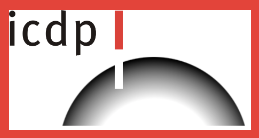
SPP 1006 International continentale drilling program (ICDP)
Drilling is the only way to match models of the Earth's interior with reality. The ICDP aims to empower geoscientists to use the research tool of scientific drilling to test these models of the Earth's interior using information from the depths. Given the typically high cost of drilling and research in and around boreholes, it is clear that any proposals for drilling using the ICDP must address substantive scientific questions with a strong focus on societal needs.
SPP 1294 HALO
The “High Altitude and long Range Aircraft” (HALO) is a platform for atmospheric and Earth System research. It is in operation since 2010, conducting a multitude of research missions and thus providing valuable insights into several scientific fields. Numerous in-situ and remote sensing instruments are certified for the operation on HALO. Hence, a flexible, modular scientific payload can be integrated on HALO, allowing for a custom-tailored instrumentation for each research mission.
SPP 2404 Deep Dyn
In 2022, the DFG established the SSP 2404 “Reconstructing the Deep Dynamics of Planet Earth over Geologic Time (DeepDyn)”. The programme is designed to run for six years.
One of the most striking properties of the geodynamo are complete reversals of the dipole field. The reversal frequency changes over geologic time scales typical of mantle convection. Numerical simulations indeed indicate that the lower mantle has a manifold impact on the dynamo where the absolute value and pattern of the heat flux through the core-mantle boundary affects the field strength, field geometry and reversal rate. However, neither the long-term evolution of the lower mantle and the dynamo, nor the coupling between the two are well understood, which forms the basis of DeepDyn.
About 90% of the work on this topic is done by geophysicists, but 3 Cologne geologists (AG Jahn, AG Melles, AG Münker) and their subprojects are also involved.
FOR 5361 KI - Algorithmic data analysis for the Geodesy (AlgoForGe)
The DFG-funded Research group 5361 is dedicated to the algorithmic challenges of fundamental AI problems focused on two central areas of geodesy, both dealing with geometric abstractions of the real world: cartography and physical geodesy. In this context, there are 8 subprojects, such as A3: Scalability of geometric clustering algorithms A3: Scalability of geometric clustering algorithms with Prof. Dr. Christian Sohler as the applicant.
EXPATS
The name stands for EXploiting sPAtioTemporal cloud patterns to advance severe Storms process understanding and detection: EXPATS is a junior research group of 3 people, and our main goal is to improve our knowledge and capacity to predict severe storms over the Alps. We will do that by using methods based on Artificial intelligence and exploiting the satellite observations from the brand new MTG satellite launched by EUMETSAT in December 2022, as well as data from radar at the ground and lightning datasets. We will also use machine learning as a new framework for evaluating high-resolution model simulations over the Alps, performed by the Alpine Digital Twin (ICON-GLORI).
The project, funded by DWD, is part of the IDEA-S4S network, a bilateral initiative between Germany and Italy to foster scientific research and promote the formation of new researchers on ECMWF topics.
Klima-OER
Klima OER (Open Educational Resources): Developing, expanding and strengthening the OER community in meteorology to the widest possible range of subject areas relating to the climate system to create an accessible and level-appropriate climate OER landscape.
Climate change is one of the most pressing problems of our time. The overall aim of the joint project is to raise awareness of the causes and effects of climate change among students, teachers and the interested public on a substantive and factual level. For this educational purpose, subject-specific OER materials are collected, actively shared and used specifically in educational contexts.
HESCOR
Cultural Evolution in Changing Climate: Human and Earth System Coupled Research
In the framework of the Profile Building 2022 of the Ministry for Culture and Science of the State of North Rhine-Westphalia (Profilbildung 2022 des Ministeriums für Kultur und Wissenschaft des Landes Nordrhein-Westfalen), Germany, a new project on “Cultural Evolution in Changing Climate: Human and Earth System Coupled Research (HESCOR)” will be established at the University of Cologne. HESCOR aims to develop a new science field of Human and Earth system coupled research through a cross-faculty multi-disciplinary structure and to investigate how the constellation of and interaction between the Human and Earth systems influenced human cultural evolution during the main phases of human expansion.
ADAPTEX
The goal of the ADAPTEX project (Adaptive earth system modeling with greatly reduced computation time for exascale supercomputers), in which AG Gassner is involved, is the development of a generally usable open-source software framework for exascale-capable flow simulations on dynamic adaptive grids and its application in Earth system modeling. By merging existing, individually specialized high-performance computing software libraries and extending them to heterogeneous exascale computer architectures, the parallel scalability of current and future CFD applications should be significantly improved, the modeled spatial resolution and accuracy increased, and overall resource efficiency improved.

WarmWorld
WarmWorld will restructure the Earth-system modelling enterprise to best make use of advances in information technology to compute and evaluate kilometer-scale climate trajectories. By further developing an ICON based storm-and-eddy-resolving Earth-system (SR-ESM) model, WarmWorld will develop innovative workflows to make the information contained within the projected trajectories transparent to application communities. At the same time it will help harmonise national and international efforts to provide, disseminate, learn from, and use the highest possible quality of climate information.
DISTENDER - Project within the EU Horizon Europe
DevelopIng STratEgies by integrating mitigatioN, aDaptation and participation to climate changE Risks
DISTENDER investigates and analyzes strategies for adaptation to climate change and mitigation of climate change effects. DISTENDER develops a methodological framework for the development of strategies through participatory approaches, showing effects of different climate and socio-economic scenarios and thus identifying the space for action for adaptation measures and their impact.
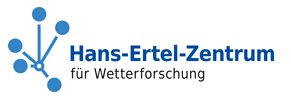
Hans-Ertel-Zentrum (HErZ)
Basic research is carried out at the Hans Ertel Center for Weather Research to improve both weather forecasting and climate monitoring. Only in this way can the DWD meet the future challenges of its key customers with its weather warnings and climate services. To this end, an internationally visible competence center will be established for the sustainable networking of the DWD with top meteorological research in Germany. This will strengthen meteorological education at universities and secure personnel development for weather research in the German Weather Service and at research institutions.
Jülich Observatory for Cloud Evolution (JOYCE)
operates ground-based active and passive remote sensing instruments for cloud and precipitation observations.
Central goals of JOYCE are:
- High-resolution and state-of-the-art cloud and precipitation observations using instrument synergy
- Standardized and documented operation procedures for cloud and precipitation research
- Centralized access for external users to instruments, operation and observation platforms
- Easy and open access to database and observations of all instruments

CESOC
Ongoing global environmental changes require comprehensive knowledge on the manifold of processes shaping our climate system. Therefore CESOC aims to comprehensively observe, understand and forecast the Earth system in times of global environmental changes. Working across disciplines, faculties and the locations: Bonn, Cologne and Jülich, using new information technologies to improve environmental monitoring and aiming at a digital Earth model (digital twin) are important points of the vision of CESOC.
Abgeschlossene Projekte
KI:STE
The KISTE project aimed to exploit recent developments in artificial intelligence – especially deep learning methods – for sound environmental data analysis. The scientific goal was the implementation of current AI approaches for spatiotemporal variable pattern recognition and pattern analysis in environmental data in the subject areas clouds, snow/ice, water, air quality and vegetation within the framework of five dissertations.
